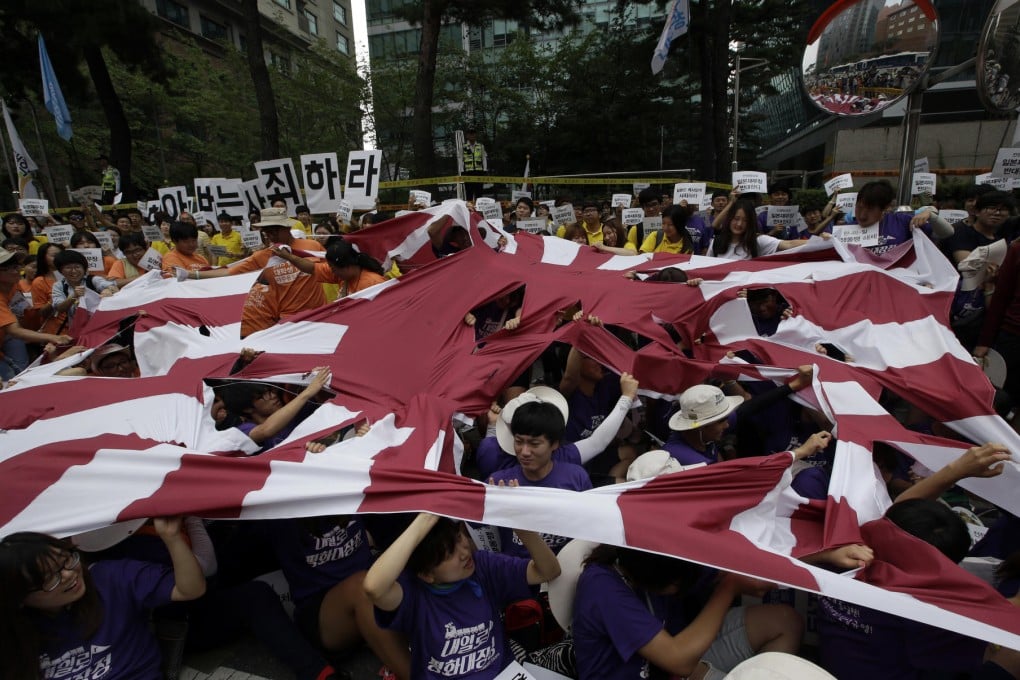Beijing slams shrine visit by Japan ministers as Emperor Akihito marks the 70th anniversary of end of second world war
'Strong dissatisfaction' voiced by China as nations mark war anniversary

Beijing yesterday voiced "strong dissatisfaction" over a visit by three Japanese cabinet ministers to Tokyo's controversial Yasukuni shrine, as Japanese Emperor Akihito marked the 70th anniversary of the end of the second world war with an expression of "deep remorse" over the conflict and a subtle rebuke to Prime Minister Shinzo Abe.
The visits - on the anniversary of Japan's surrender - came a day after Abe issued a new statement on the war, which China and South Korea said did not amount to a proper apology for Tokyo's past aggression. Abe expressed "utmost grief", but said future generations should not have to keep apologising and offered no fresh apology of his own.
"Some Japanese politicians chose this day to visit the shrine, which honours 'Class A' war criminals and glorifies the aggressive war," the Foreign Ministry in Beijing said.
"It demonstrates again Japan's erroneous attitudes towards the historical issues," it added. "China lodges its resolute opposition and strong dissatisfaction."
Visits by Japanese politicians to Yasukuni enrage neighbouring nations, which view them as an insult and painful reminder of now-pacifist Japan's history.